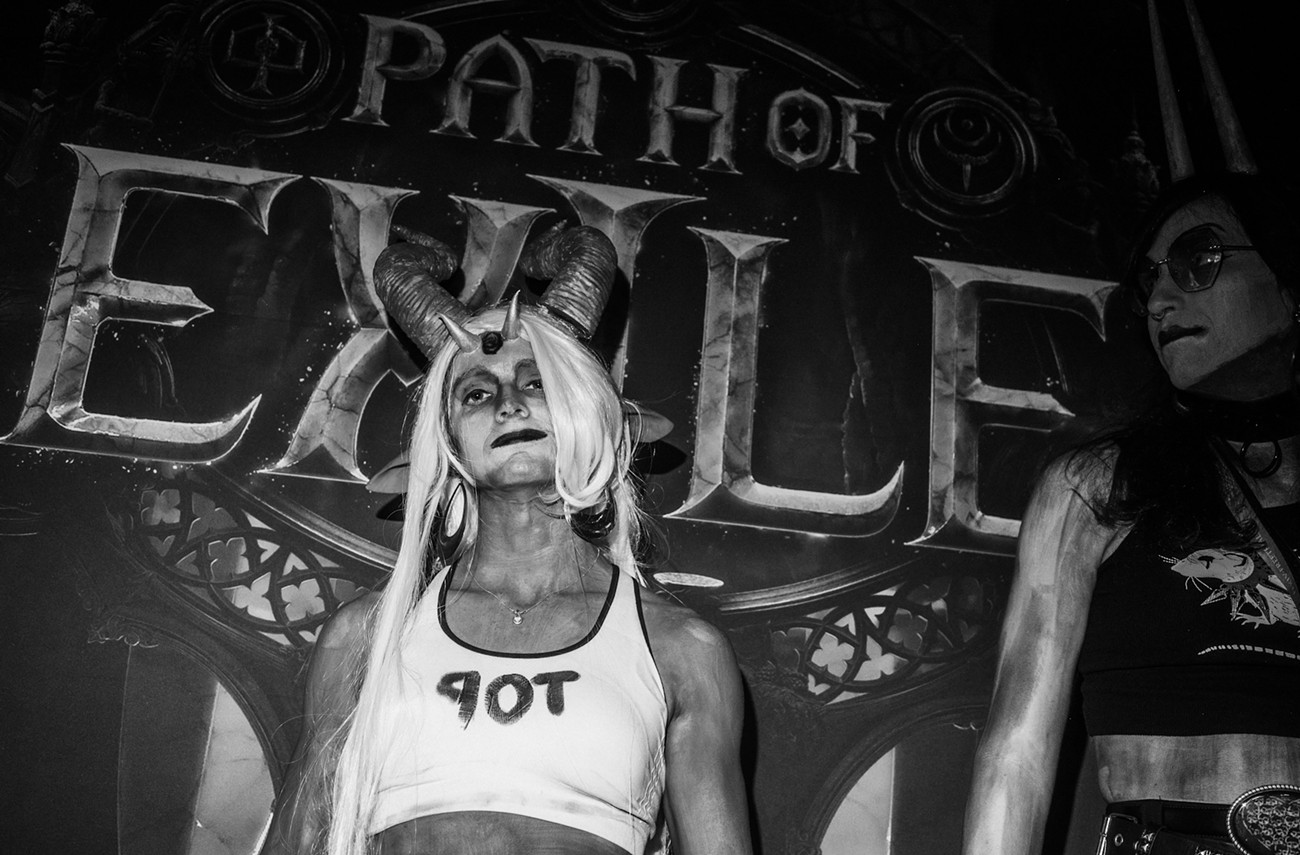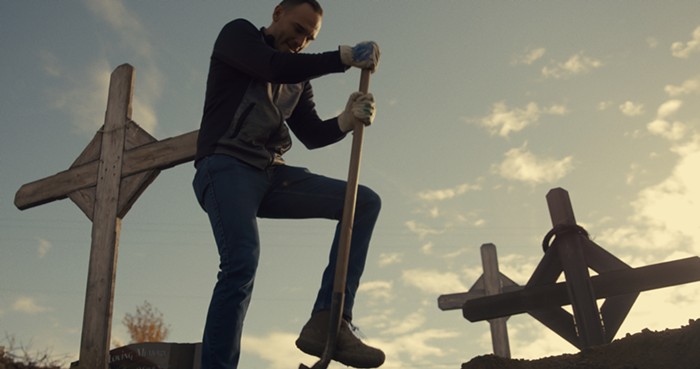PAX West is horny. In just a few hours we saw people who were horny for their favorite characters, horny for GPUs, horny for swords (we saw so many swords), horny for followers, horny for dice, horny for meeting like-minded friends. Some are horny for Mario. Absolutely everyone is horny for Baldur’s Gate III (BG3)—a steamy ground-breaking character-based RPG that has won countless awards for its branching and intricate story choices. (There are so many romance combinations that one series of selections leads to an infamous cut-scene where you get to gay-fuck a bear—consensually of course.)
To be clear, PAX isn’t just horny. It’s many things. What started as an early webcomic has ballooned into one of the largest gaming conventions on the West Coast. Release dates, teasers, and entire marketing department calendars revolve around PAX for promoting their games.

And, sadly for us, most of the panels weren't focused on lusting after hot twinks with swords. A vast majority of PAX West is family friendly with age limits on the saucier events. Many panels dealt with actual challenges of making video games as well as discussions on how to break into a tough industry amid massive layoffs.
But this past weekend, rather than focusing on the companies flaunting their wares for those with coin, the real question is what PAX West means to the thousands who travel, dress up, and spend their Labor Day weekend at Seattle’s two downtown convention center buildings. Why do people invest so much of their time and identities into these fictional worlds? Why do people feel such strong connections to some video games to the point where they want to romance their characters? In short, what makes people horny for PAX?
Horny for Authenticity
Of course, the costumes are perhaps the best part of these conventions and the creativity and ingenuity of cosplayers is always an inspirational delight. Costumes ranged from sexy Mario (courtesy of Chase) to full plate armor (as worn by the creative director of Larian Studios, Swen Vincke) and everything in between. We met an attendee named Pixel, who was dressed as a blue shell in a onesie with Hermes wings, and Chris, who was dressed as a drow elf with gray-painted skin to match. Some wore outfits with impressive technical execution, others dressed up to look and feel hot, everyone who dressed up looked fantastic.

When we asked people which video game character they thought was the sexiest the answers ranged from “hot Ganondorf” to Astarion to the entire cast of Overwatch. Gamers’ sexual appetites are hard to predict because players will basically fuck anything a game lets them. There is even a video game called Date Everything! where every inanimate object in your house transforms into a romanceable avatar.
“I’m pretty sure [Mass Effect] didn’t expect people to want to fuck the aliens. But then Mass Effect 2 and 3 came out and you can fuck the aliens,” said Joseph Hunter, better known as the game developer AkaBaka, at the panel Thirst to Quench: Sexy Video Game Characters for Everyone. (It should be noted that the slide that got the biggest cheer from the room was the slide full of sexy monsters—the monster fuckers turned out at PAX.)
But any medium can have sexy monsters. What video games offer is choice. Everyone has different tastes, and with different narrative choices offered to a player, a game can cater to those tastes: People can explore relationships outside of their usual type; Queer people can gender swap their avatars, letting them romance a gender the game normally wouldn’t allow, or express as a gender that would be unsafe in real life; And, of course, the monster fuckers can even thirst for their winged eldritch terrors, eeking out small expressions of affection in the gameplay before getting mauled. It’s also fun to play as a villain just so you get to do bad things 💅.
After listing out the video games character they’re personally horniest for, the panelists at Thirst to Quench agreed that it takes more than a sexy outfit and a stacked pixel bod to make players hot for a character. “I’m a story-driven human,” explains Tanya DePass, the video game writer, journalist and the founder and Director of I Need Diverse Games, also known as cypheroftyr. For Depass, when asked what makes her want to buy a game, “the physical nature of a character is not enough—there needs to be an emotional element.” It turns out that giving players someone they can empathize with and emotionally connect with is the key to creating romantic attraction (same is true irl, tbh). Beyond the visual attractiveness of the character’s design, players are drawn to the unique personality and personal growth of the character throughout the game. It’s the narrative design rather than predictable tropes that gives a character the feeling of authenticity.
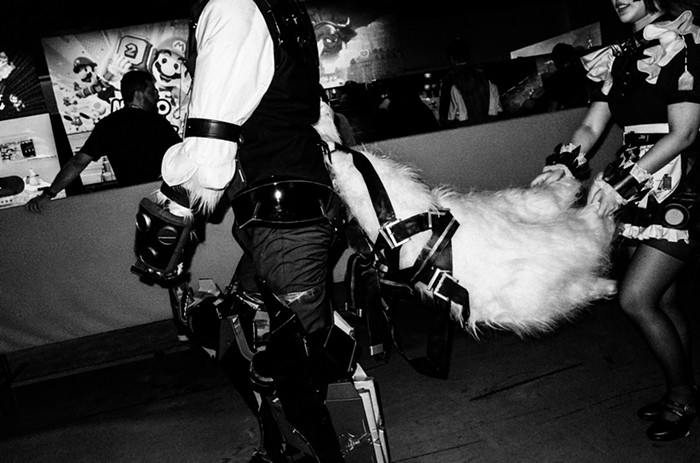
In fact, when it comes to making a compelling video game, the one thing that was cited even more often than Baldur’s Gate was the desire for this proverbial authenticity.
The illusion of authenticity of a video game’s interactive environment is often enhanced by the level of free choice a player is allowed by a game, and the degree of responsiveness the game provides in return. The more freedom a player is given however, the more responsive the game has to be and the easier it will be for a player to break this illusion—players will try anything and everything. Games (so far) can’t anticipate every player action. Jeremy Holcomb, program director at DigiPen, asks: “How can you, as a narrative designer, assert your will and control over a user?” 🥵
Video game characters are even more challenging to render “authentically,” because they’re simulating a “person.” In order to respond to a player, the computer needs a script or “anchor” to prevent the illusion of conversation from being shattered by inconsistent responses. At a panel called Open Dialogue Design: When NPCs Talk Back, the experience was derided as “like having a conversation with Chat-GPT” (derogatory). It turns out that without a human to tell the computer which personality it should adopt, the computer can’t play that character convincingly. This is the challenge game designers constantly face, how to retain the organic draw of characters crafted by real humans while increasing the freedom offered to players.
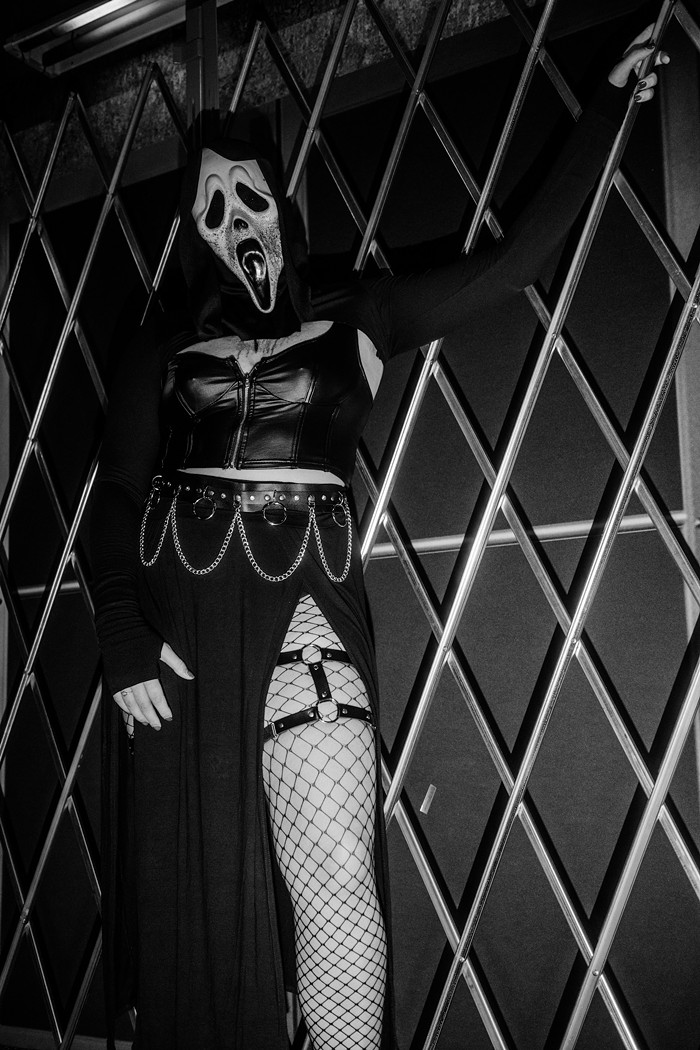
For the Larian Studios (the makers of Bladur’s Gate III), the approach was to lean into the breadth and depth of human experience and the different types of romances that come from a diversity of characters. “Whether it was sexuality, parts of their identity, or traumas, we wanted them to feel authentic,” says Adam Smith, writing director for BG3, to a packed crowd in the PAX main theater. “I think when they feel authentic and when they feel like diverse people with different problems, different attitudes, and different kinks, arousals, fetishes, whatever it might be.”
The goal, then, is to make these games reflect real life as much as possible. But despite the drive for authenticity, representation in games and the industry in general is still a struggle. Misogyny and racism in the gaming community and industry are still quite prevalent despite it being a full decade since the Gamergate scandal of 2014. While representation has improved—especially in player customization options with trans-inclusive pronouns and genitals—there are still far too few examples of fat or disabled video game characters, let alone as playable avatars. As Virvada, co-host of the Two Girls One Ship podcast lamented Gale, a mage from BG3, “could have been pudgier.”
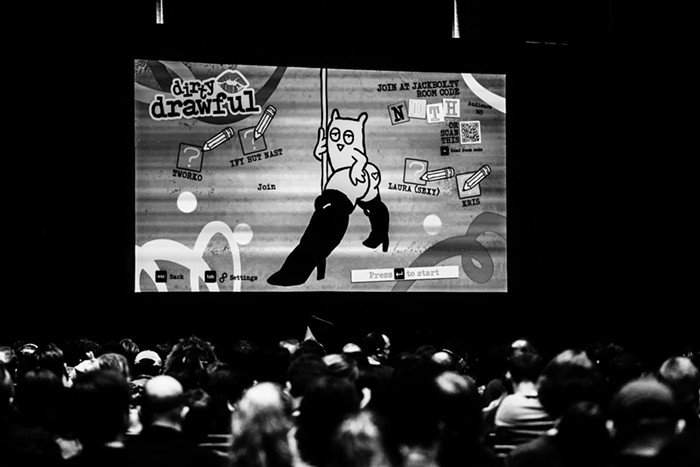
Authenticity exists as a bit of a paradox in the game development world. How does the quest for ever-increasing authenticity in characters' storylines and environments square with the inherent nature of escapism that video games offer? If one wants authentic personalities and high-fidelity graphics, why not just go outside?
Because real life is scary.
A Parallel Reality
Video games offer escapism in virtually every form, from sword-wielding super warriors to lush farm simulators. As a result, PAX exists in an almost parallel reality. A place where you can simulate command of a starship bridge, wrangle mythic beasts to help grow your homestead, expand an insect empire, or build a city amongst the stars on the back of a space whale.

The role of fantasy is inseparable from sexual desire. While vampires and long-haired elf villains are lusted over in video games, few of us would willingly date a vampire in real life. (Personally, I moved to the PNW for a reason and the number of vampires in Washington has been greatly exaggerated.)
Games allow us to play with power dynamics and relationships that are disturbing outside of a fictional setting. Very often what we fear and what we desire are uncomfortably intertwined. “I find the line between this is hot and this is scary and then I push it fifty percent further,” AkaBaka told the room at PAX. Because these games are virtual, the player always stays in control of their role-playing fantasy.
In this way, games serve as a safe space for exploring new desires, new kinks, orientations, and even new bodies. In this way, video games have been vital for countless queer people in discovering their identities. Character customization and experimenting with gender in video games is a hallmark of many trans and queer awakenings.
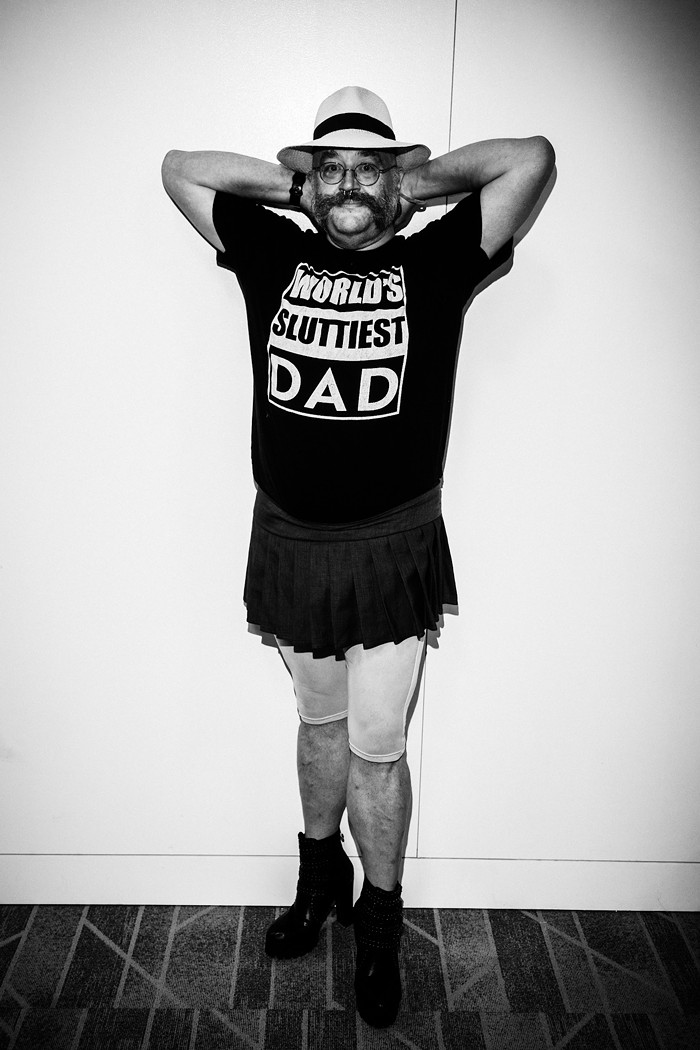
It should be said, of course, that not everyone plays video games to get off. Video games offer one of the few spaces adults can reclaim “play” in all its forms. But as questions about sex in media and neo-puritanical arguments for “only necessary sex scenes” (whatever the fuck that means) emerge online, it feels more important than ever to celebrate the infinite menagerie of sexiness that horny video game players crave. As Adam Smith said to thunderous applause from PAX West attendees, “I don’t think sexuality should be controversial. I think it’s okay for things to be sexy.”
The gamers have spoken. Keep video games horny. Let us gay-fuck the bear!
